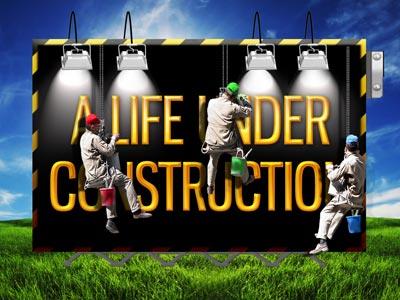-
Ciritical Thinking
Contributed by Clair Sauer on Jul 31, 2013 (message contributor)
Summary: When we are conformed to the image of Christ through salvation, it changes us, and we begin to look at the world in a different way. No longer can we be comfortable with the way things are, but we have to begin to see things as Christ sees them.
Earlier this summer, Mary Ellen watched The Lion, The Witch, and the Wardrobe for the first time. As a result, she has developed a keen interest in C.S. Lewis’ Narnia series and Ken has been reading to her from the series almost every night. Mary Ellen has asked me several times which Narnia book is my favorite, and I always answer the same, The Voyage of the Dawn Treader. She hasn’t gotten to that book yet, but I look forward to reading it with her when she does. There happens to be a scene in that book that illustrates well the idea being expressed by the writer in this passage from Colossians.
In The Voyage of the Dawn Treader, C. S. Lewis tells of how a young boy named Eustace becomes a dragon—a very unhappy dragon at that. Eustace steals a gold armband and puts it on, only to find that his greed turns him into a dragon. And the armband is excruciatingly tight on his dragon foot.
One night, in the midst of his pain and frustration, Eustace encounters a huge lion who tells the boy to follow it to a high mountain well. Eustace longs to bathe his aching foot in the cool water, but the lion tells him he must undress first. It seems silly to Eustace because dragons don't wear clothes, but then he remembers that dragons, like snakes, cast their skins.
So Eustace scratches his skin, and the scales begin falling off—and soon his whole skin peels away. But when he puts his foot in the water, he sees that it is just as rough and scaly as before. He continues scratching at the second dragon skin and realizes there is yet another underneath.
Finally the lion says, "You will have to let me undress you." Eustace is afraid of the lion's claws but desperate to get in the water. The first tear is painfully deep as the lion begins to peel away the skin. Surely death will follow, Eustace believes. With the gnarled mess of dragon skin now cut away, the lion holds Eustace and throws him into the water.
Initially, the water stings, but soon it is perfectly delicious. Eustace swims without pain, for he's a boy again.
Many of you are aware of C.S. Lewis’ work and the fact that his Narnia series is in many ways a metaphor for biblical truths. And indeed, with this story of Eustace, we have a very vivid (if imaginative) description of the sort of change that takes place when we allow Christ to reign as Lord of our lives. Clearly, it’s no easy process. We have to shed the “old” and take on the “new.” It’s slow, maybe sometimes agonizingly slow. It’s painful, as we have to let go of the identity that has shaped us for so long. But if we can bear it, just like Eustace, we will emerge as the people who God made us to be—his beautiful, pure, creation.
Just as we heard last week, the writer of Colossians is stressing again the salvation that has been accomplished by Christ. This time, though, he does so by reminding his readers of the significance of their baptism; a dying and rising with Christ that breaks the power of sin and incorporates us into the kingdom of God. We get yet another view of the vast work of Christ’s salvation in this passage because now, the author wants to emphasize not so much Christ’s atoning sacrifice, but our incorporation into a new reality, the body of Christ. This is about a completely new way of life, but not just any life. It’s more than a life free from the enslaving powers of this world; this new life actually anticipates the ultimate future, when God’s kingdom will come in all of its glory.
I don’t know if there’s any way I can stress how immensely important this is. We talked last week about the gift of salvation through Jesus Christ. And what we see this week is that that salvation is only complete when our lives are changed, completely changed, because of our relationship with Christ. I’m not talking about we just start going to church every week, and then live the rest of our lives the same way we always did. I mean things CHANGE! That’s why the author has laid out this list of vices and virtues. Put to death are all things earthly: “sexual immorality, moral corruption, lust, evil desire, greed,” and lying. No longer can we be consumed by “anger, rage, malice, slander, and obscene language.” Instead, we must be filled with “compassion, kindness, humility, gentleness, and patience.” We must be tolerant and forgiving, and loving. In short, as the writer says, we must put on the image of the one who created us.

 Sermon Central
Sermon Central



